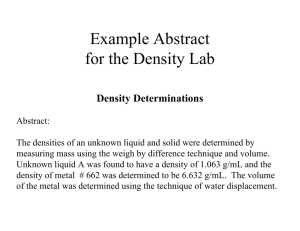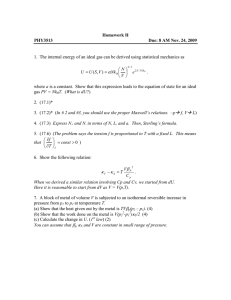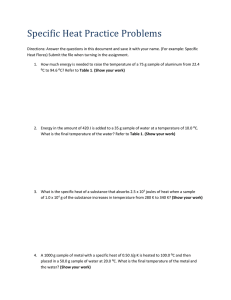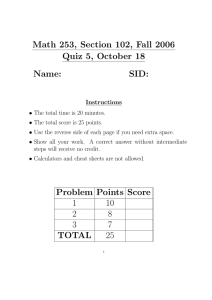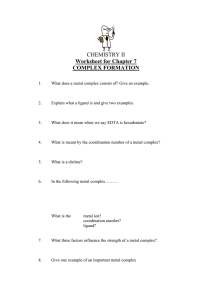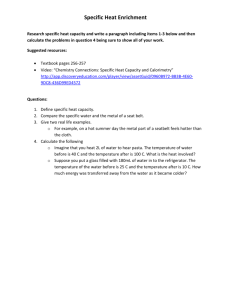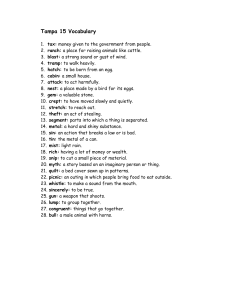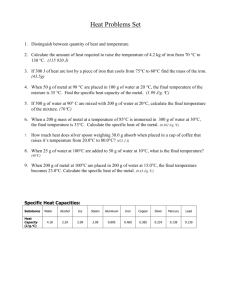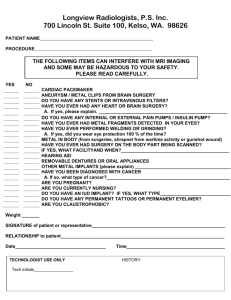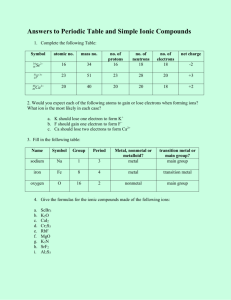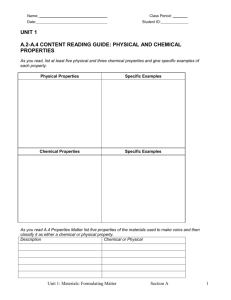Density of a Solid Lab: Underwater Weighing
advertisement
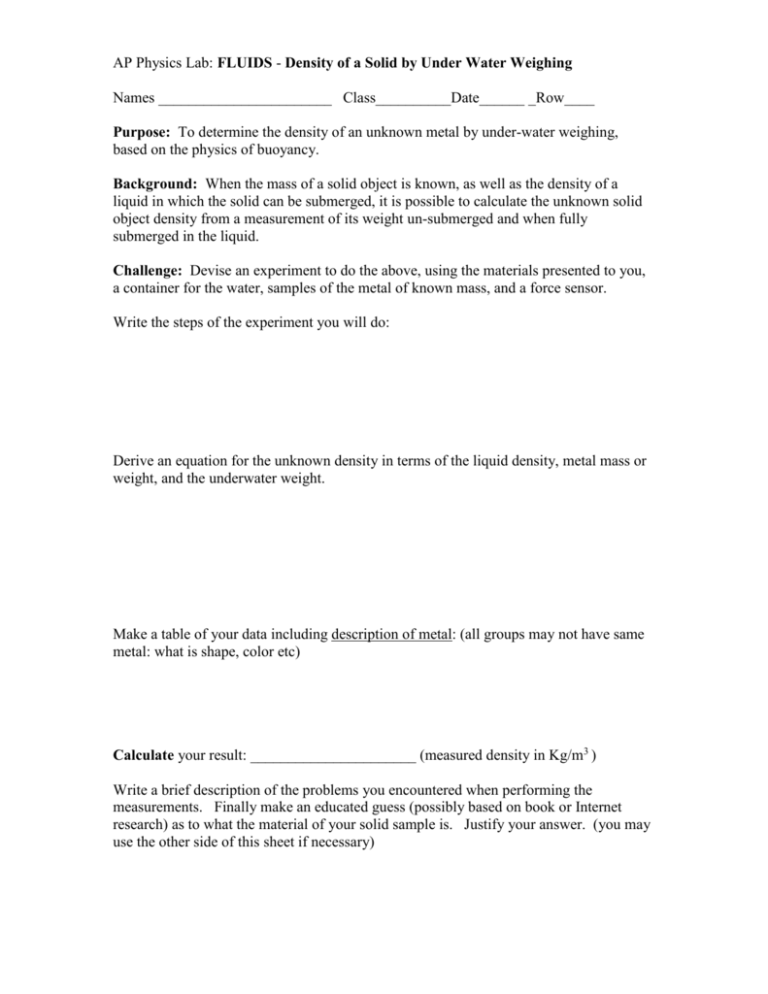
AP Physics Lab: FLUIDS - Density of a Solid by Under Water Weighing Names _______________________ Class__________Date______ _Row____ Purpose: To determine the density of an unknown metal by under-water weighing, based on the physics of buoyancy. Background: When the mass of a solid object is known, as well as the density of a liquid in which the solid can be submerged, it is possible to calculate the unknown solid object density from a measurement of its weight un-submerged and when fully submerged in the liquid. Challenge: Devise an experiment to do the above, using the materials presented to you, a container for the water, samples of the metal of known mass, and a force sensor. Write the steps of the experiment you will do: Derive an equation for the unknown density in terms of the liquid density, metal mass or weight, and the underwater weight. Make a table of your data including description of metal: (all groups may not have same metal: what is shape, color etc) Calculate your result: ______________________ (measured density in Kg/m3 ) Write a brief description of the problems you encountered when performing the measurements. Finally make an educated guess (possibly based on book or Internet research) as to what the material of your solid sample is. Justify your answer. (you may use the other side of this sheet if necessary)
